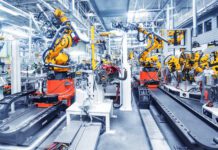
POSCO, a South Korean steel manufacturing company, and ENGIE, a French energy provider, have jointly embarked on a pre-feasibility study for a substantial renewable hydrogen project in the Pilbara region of Western Australia.
The primary objective of this study is to assess the potential of renewable hydrogen as a power source for POSCO’s proposed Hot Briquetted Iron (HBI) plant situated in Port Hedland, the government said in a media statement.
The project also aims to focus on utilising renewable hydrogen to reduce global emissions and foster the production of green iron.
Furthermore, the study intends to bolster the development of inland renewable energy sites.
These include wind and solar power generation, a hydrogen electrolyser, expansive storage capacities, and a pipeline designed for transporting green hydrogen to South Korea.
This initiative aligns with the decarbonisation of POSCO’s assets, the government revealed.
To date, the Pilbara region is renowned for its contribution to the global iron ore supply, accounting for 38 per cent of this resource.
Although this iron ore is processed overseas to produce steel, the introduction of HBI, a premium form of direct reduced iron, could augment the value of Pilbara iron before export.
The establishment of a local HBI plant would enable an essential intermediate step in the processing of iron ore into steel.
Hydrogen Minister Bill Johnston, sharing his thoughts on this significant endeavour, emphasised that Western Australia is continually exploring the potential of renewable resources in the resources sector.
“This builds off our successful Green Streel Opportunity report completed earlier this year, which mapped how WA iron ore can reduce emissions in steelmaking,” the minister noted.
Johnston added, “Producing green steel would make WA a world player in the green industry, with current steel manufacturing generating more than seven per cent of global carbon emissions.
The comprehensive study is slated for completion in early 2024.




















